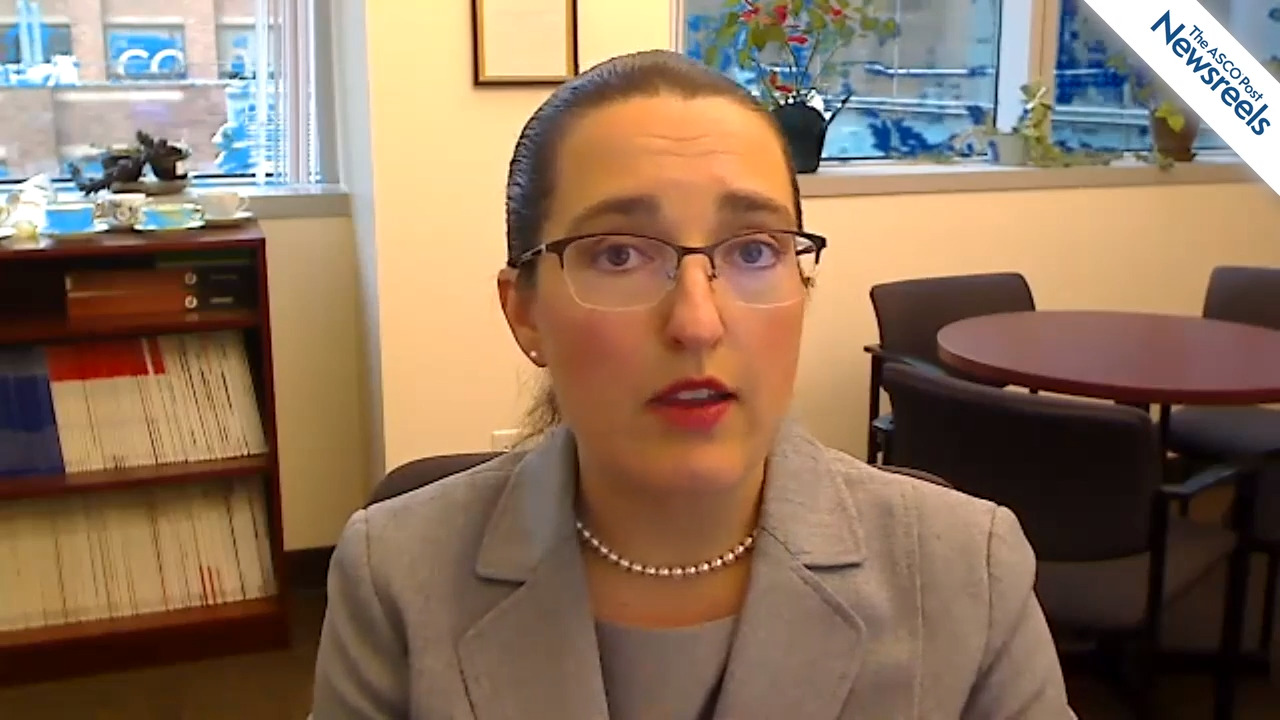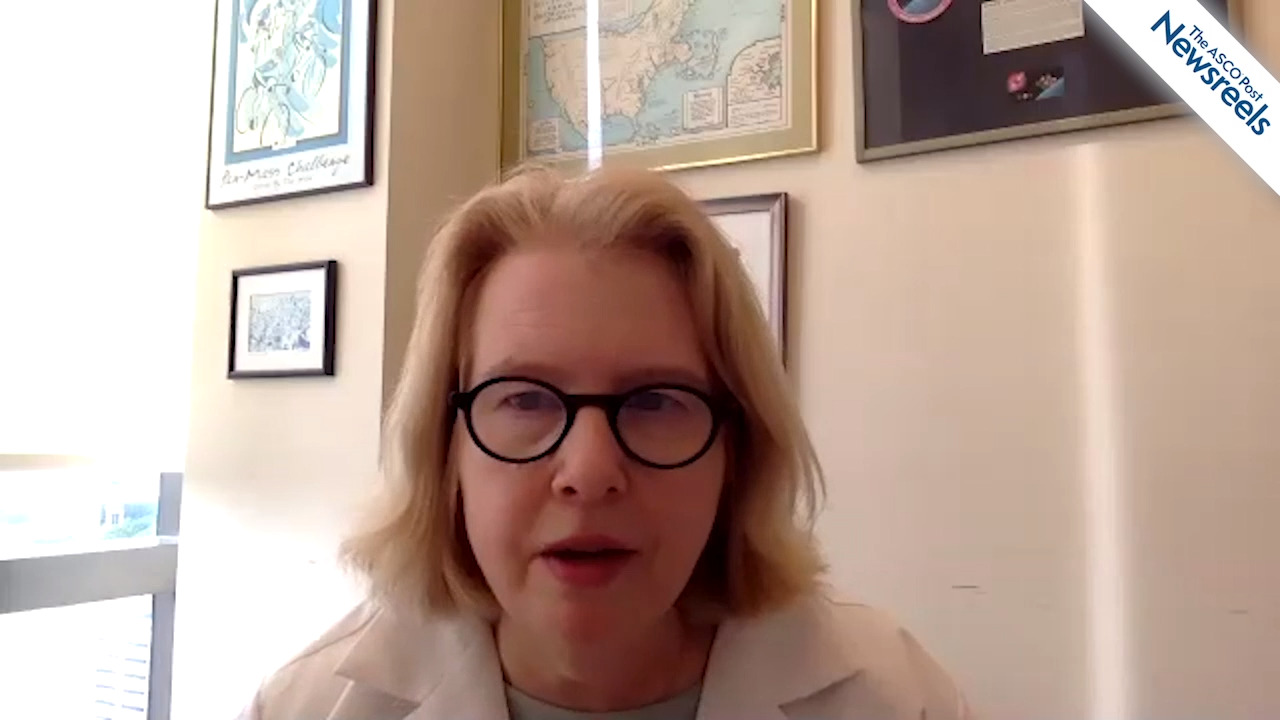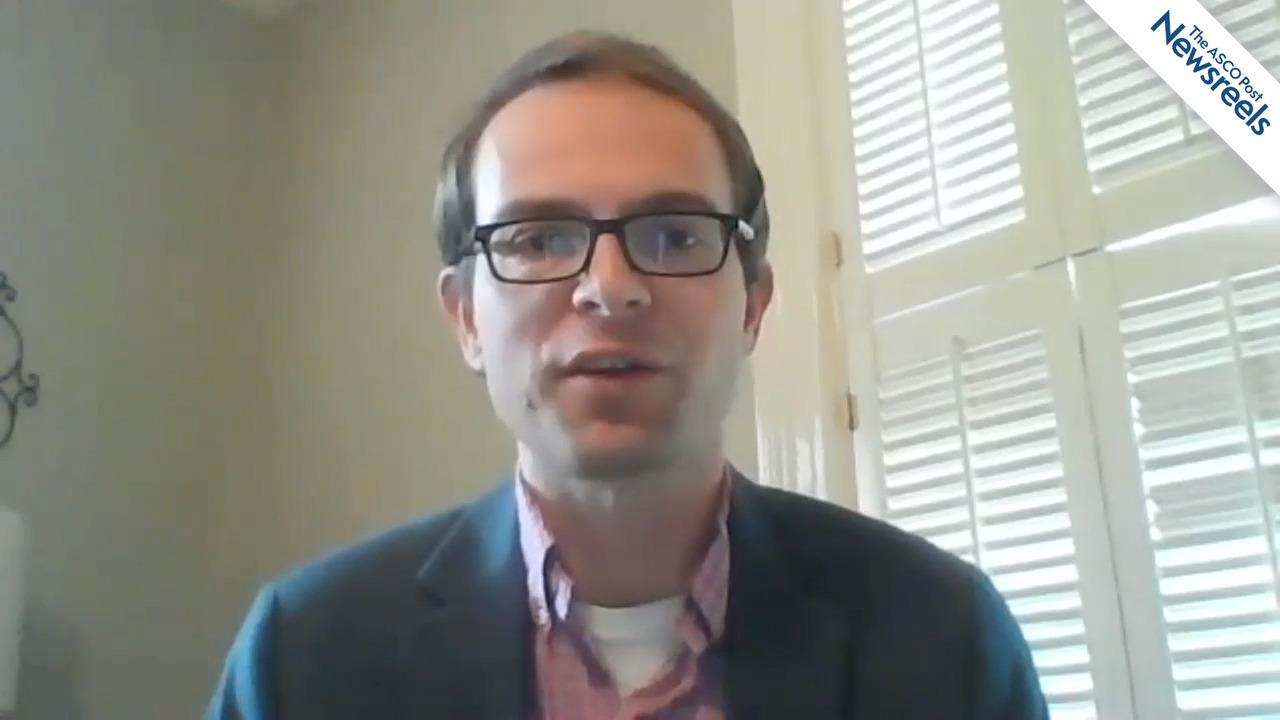Richard L. Schilsky, MD, on This Year’s Practice-Changing Findings
ASCO20 Virtual Scientific Program
Richard L. Schilsky, MD, Chief Medical Officer of ASCO, talks about some of the most important and practice-changing findings presented this year at the ASCO20 Virtual Scientific Program, including the use of targeted and immunotherapies in earlier lines of therapy, where they have made a significant impact.
The ASCO Post Staff
Parameswaran Hari, MD, of the Medical College of Wisconsin, discusses data from four trials and their clinical implications for the treatment of patients with multiple myeloma: the KarMMa and EVOLVE studies on CAR T cell therapies; SWOG-1211 on bortezomib, lenalidomide, and dexamthasone with/without elotuzumab for newly diagnosed, high-risk disease; and the GMMGCONCEPT trial on isatuximab, carfilzomib, lenalidomide, and dexamethasone in front-line treatment (Abstracts 8503, 8504, 8507, 8508).
The ASCO Post Staff
Daniel P. Petrylak, MD, of the Yale Cancer Center, discusses early data on ARV-110, an androgen receptor proteolysis–targeting chimera degrader, demonstrating antitumor activity in metastatic castration-resistant prostate cancer after treatment with enzalutamide and abiraterone (Abstract 3500).
The ASCO Post Staff
Rachel E. Sanborn, MD, of the Providence Cancer Institute, discusses three key abstracts on EGFR-mutated non–small cell lung cancer: a final overall survival analysis of bevacizumab plus erlotinib; concurrent osimertinib plus gefitinib for first-line treatment; and first-line treatment with a tyrosine kinase inhibitor with or without aggressive upfront local radiation therapy (Abstracts 9506, 9507, 9508).
The ASCO Post Staff
Ursula A. Matulonis, MD, of Dana-Farber Cancer Institute, discusses three important studies focusing on newer therapies for patients with recurrent platinum-sensitive, platinum-agnostic, and advanced recurrent ovarian cancers (Abstracts 6003, 6004, and 6005).
The ASCO Post Staff
Douglas B. Johnson, MD, of Vanderbilt University Medical Center, discusses three important melanoma abstracts: the need for more than two doses of nivolumab plus ipilimumab in combination immunotherapy; antitumor activity for low-dose ipilimumab with pembrolizumab after disease progression on PD-1 antibodies; and ipilimumab alone or in combination with anti–PD-1 therapy for metastatic disease resistant to PD-1 monotherapy (Abstracts 10003, 10004, and 10005).





